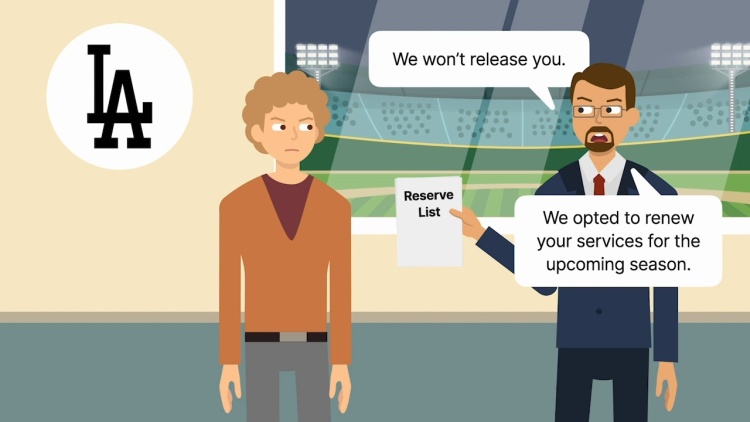Kansas City Royals v. Major League Baseball Players Association
United States Court of Appeals for the Eighth Circuit
532 F.2d 615 (1976)
- Written by Craig Conway, LLM
Facts
In 1968, the Major League Baseball Players Association (MLBPA) (defendant) and the team owners reached a Basic Agreement that dealt with a number of issues including the arbitration procedure for grievances filed by players, designated the Commissioner as arbitrator of those disputes, and excluded two specific types of disputes from arbitration. In the 1970 Basic Agreement, the Commissioner was replaced as arbitrator by a three-judge panel and two additional matters were excluded from arbitration. In neither of the agreements were issues related to the reserve system excluded from arbitration. Additionally, the parties inserted a provision in Article XIV of the 1970 Agreement which specifically stated that “[r]egardless of any provision herein to the contrary, this Agreement does not deal with the reserve system…[and]…neither of the Parties will resort to any form of concerted action with respect to the issue of the reserve system, and there shall be no obligation to negotiate with respect to the reserve system.” During the term of the 1970 agreement, a number of players filed grievances involving provisions related to the reserve system which went unopposed by owners. During the 1973 Basic Agreement negotiations, the parties agreed to two modifications of the reserve system, including the arbitration of salary disputes, and Article XIV of the 1970 agreement was incorporated as Article XV of the 1973 agreement. Several players, including Messersmith of the Kansas City Royals (plaintiff), filed grievances with the arbitrators who found for the players. The arbitration panel’s award was affirmed by the district court and the Royals appealed the ruling.
Rule of Law
Issue
Holding and Reasoning (Heaney, J.)
What to do next…
Here's why 907,000 law students have relied on our case briefs:
- Written by law professors and practitioners, not other law students. 47,100 briefs, keyed to 996 casebooks. Top-notch customer support.
- The right amount of information, includes the facts, issues, rule of law, holding and reasoning, and any concurrences and dissents.
- Access in your classes, works on your mobile and tablet. Massive library of related video lessons and high quality multiple-choice questions.
- Easy to use, uniform format for every case brief. Written in plain English, not in legalese. Our briefs summarize and simplify; they don’t just repeat the court’s language.





